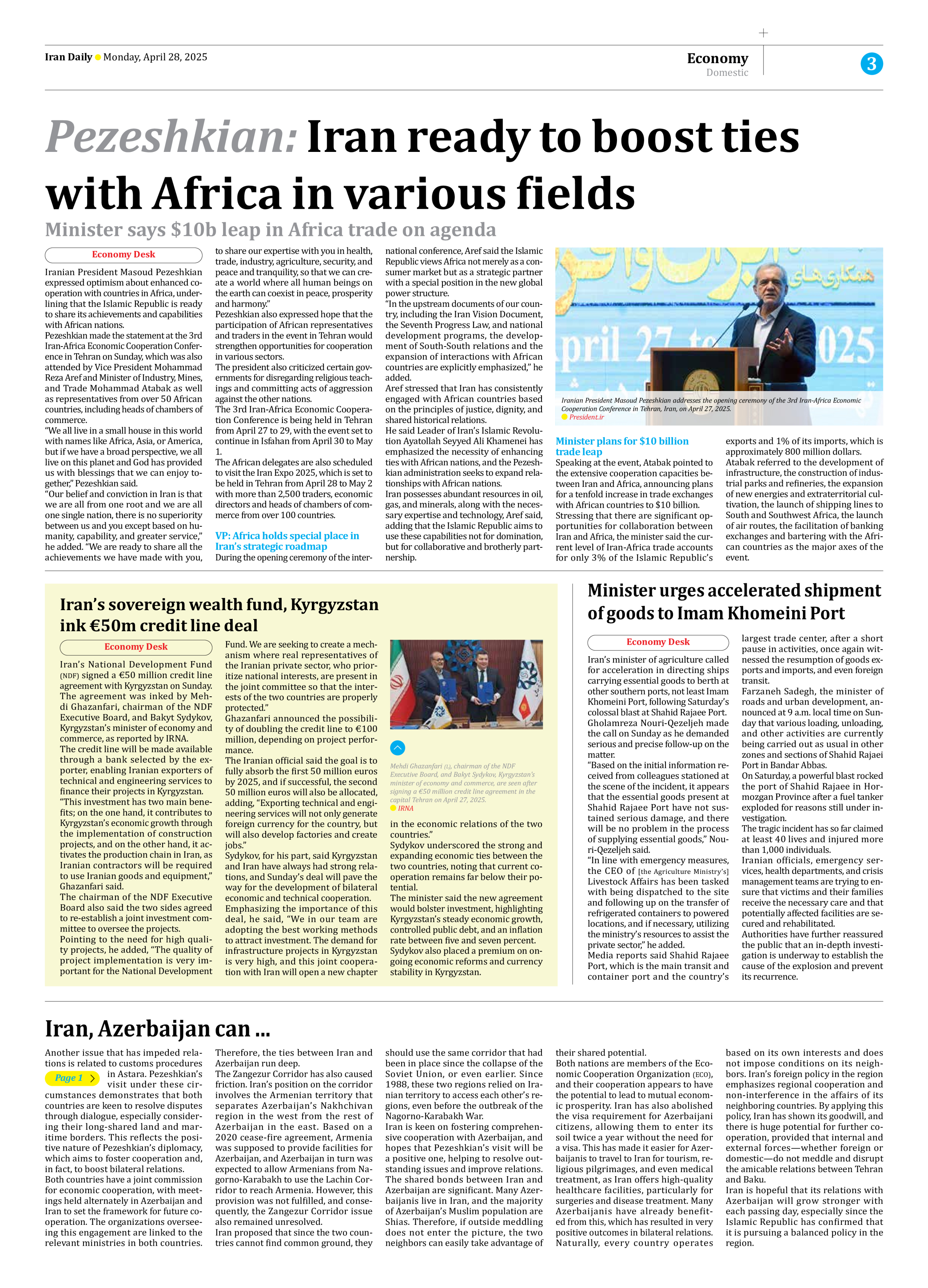
Iran, Azerbaijan can ...
Page 1
Another issue that has impeded relations is related to customs procedures in Astara. Pezeshkian’s visit under these circumstances demonstrates that both countries are keen to resolve disputes through dialogue, especially considering their long-shared land and maritime borders. This reflects the positive nature of Pezeshkian’s diplomacy, which aims to foster cooperation and, in fact, to boost bilateral relations.
Both countries have a joint commission for economic cooperation, with meetings held alternately in Azerbaijan and Iran to set the framework for future cooperation. The organizations overseeing this engagement are linked to the relevant ministries in both countries. Therefore, the ties between Iran and Azerbaijan run deep.
The Zangezur Corridor has also caused friction. Iran’s position on the corridor involves the Armenian territory that separates Azerbaijan’s Nakhchivan region in the west from the rest of Azerbaijan in the east. Based on a 2020 cease-fire agreement, Armenia was supposed to provide facilities for Azerbaijan, and Azerbaijan in turn was expected to allow Armenians from Nagorno-Karabakh to use the Lachin Corridor to reach Armenia. However, this provision was not fulfilled, and consequently, the Zangezur Corridor issue also remained unresolved.
Iran proposed that since the two countries cannot find common ground, they should use the same corridor that had been in place since the collapse of the Soviet Union, or even earlier. Since 1988, these two regions relied on Iranian territory to access each other’s regions, even before the outbreak of the Nagorno-Karabakh War.
Iran is keen on fostering comprehensive cooperation with Azerbaijan, and hopes that Pezeshkian’s visit will be a positive one, helping to resolve outstanding issues and improve relations. The shared bonds between Iran and Azerbaijan are significant. Many Azerbaijanis live in Iran, and the majority of Azerbaijan’s Muslim population are Shias. Therefore, if outside meddling does not enter the picture, the two neighbors can easily take advantage of their shared potential.
Both nations are members of the Economic Cooperation Organization (ECO), and their cooperation appears to have the potential to lead to mutual economic prosperity. Iran has also abolished the visa requirement for Azerbaijani citizens, allowing them to enter its soil twice a year without the need for a visa. This has made it easier for Azerbaijanis to travel to Iran for tourism, religious pilgrimages, and even medical treatment, as Iran offers high-quality healthcare facilities, particularly for surgeries and disease treatment. Many Azerbaijanis have already benefited from this, which has resulted in very positive outcomes in bilateral relations.
Naturally, every country operates based on its own interests and does not impose conditions on its neighbors. Iran’s foreign policy in the region emphasizes regional cooperation and non-interference in the affairs of its neighboring countries. By applying this policy, Iran has shown its goodwill, and there is huge potential for further cooperation, provided that internal and external forces—whether foreign or domestic—do not meddle and disrupt the amicable relations between Tehran and Baku.
Iran is hopeful that its relations with Azerbaijan will grow stronger with each passing day, especially since the Islamic Republic has confirmed that it is pursuing a balanced policy in the region.







